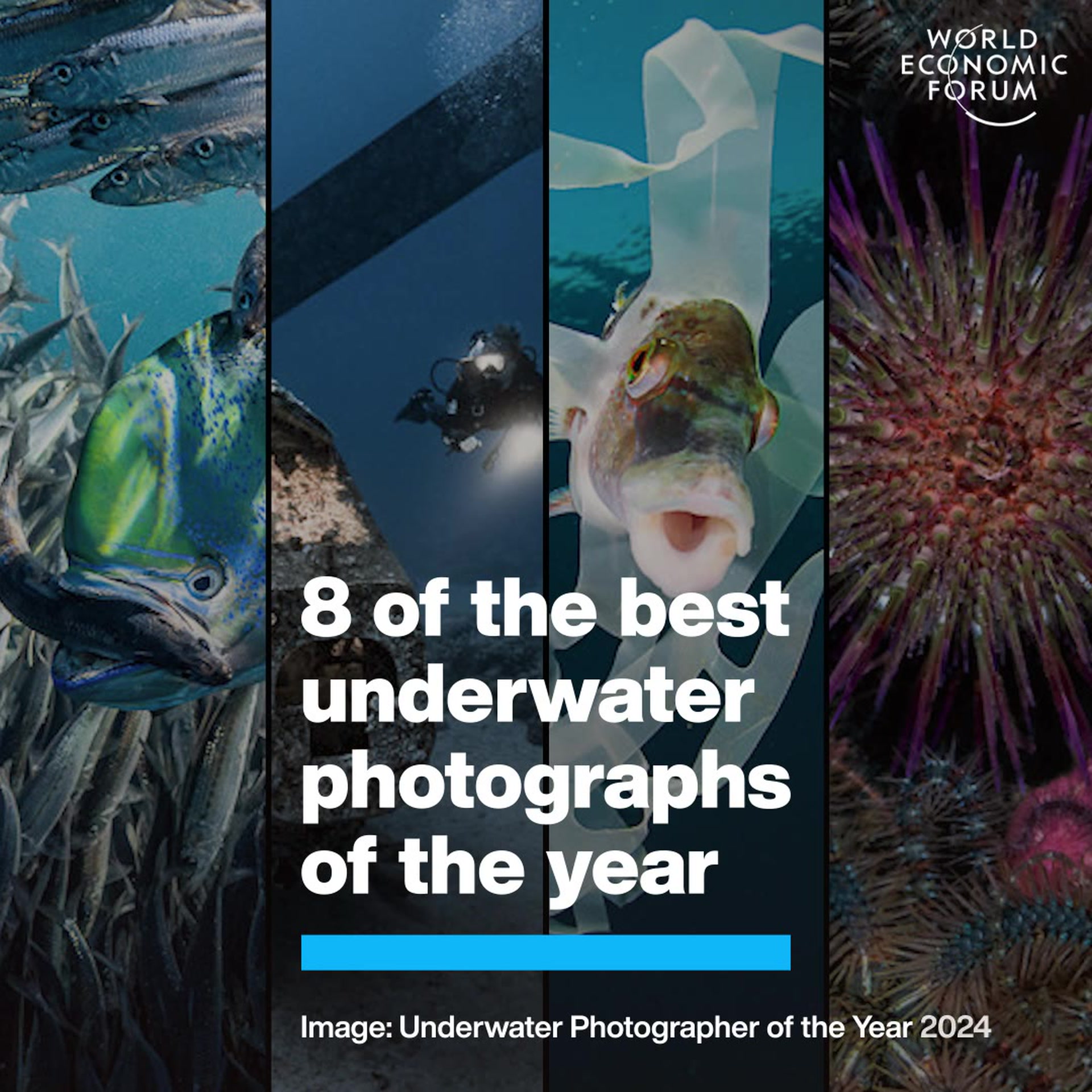11 innovations protecting life below water – and above it

Image: Unnsplash / Biorock Indonesia

Get involved with our crowdsourced digital platform to deliver impact at scale
Stay up to date:
Ocean
- UpLink, a platform for scaling innovation, unveils its second cohort of ocean innovators.
- Solutions tackle a range of ocean challenges including coral reef restoration, scaling restorative aquaculture, unearthing technologies for marine protection and helping invest in nature-based solutions.
- Innovation and collaboration are key to securing the future health of our ocean.
The ocean is our lifeline - its health is essential to our health. Securing the ocean’s well-being will have positive impacts across many global challenges we face today such as poverty, hunger, human health, unemployment, inequality and more. Finding and elevating promising ocean innovations wherever they may be, connecting them and helping them scale is crucial to ensure we protect one of our planet’s most valuable assets.
In that vein, UpLink - a digital platform for scaling innovation and driving progress toward the Sustainable Development Goals - is proud to unveil its second cohort of ocean innovators.
To find these innovators, we launched our second Ocean Solutions Sprint alongside four partners: The International Union for Conservation of Nature (IUCN), The Nature Conservancy (TNC), the International Coral Reef Initiative (ICRI), and the Seychelles Conservation and Climate Adaptation Trust (SeyCCAT).
We believe these innovations have the potential to address some of the key opportunities in the ocean space today, such as protecting and restoring coral reefs, scaling restorative aquaculture, unearthing technologies for marine protection and helping invest in nature-based solutions.
Over the next few months, we will work with the cohort to help them scale their impact through mentoring opportunities, capacity building workshops, exposure and visibility, as well as introductions to experts and potential investors where relevant. These organisations will join a growing community of UpLink innovators who are benefiting from the platform.
We would also like to thank supporting partners from the investment side Aquaspark, The Blue Natural Capital Financing Facility (BNCFF), Blue Ocean Partners, Hatch and Katapult Ocean for their support during this challenge.
Welcome to our new ocean innovators cohort:
Arc Marine and their innovative Reef Cubes can help boost large-scale coral restoration projects and provide eco-friendly marine habitats while also protecting man-made assets.
Atlantic Sea Farms is creating products made from sustainably farmed sea greens, while also expanding opportunities for fishing communities and helping them to mitigate the effects of ocean acidification.
Cascadia Seaweed provides healthy plant-based nutritional food, climate action and ocean regeneration, and economic resiliency for Indigenous communities through seaweed cultivation in British Columbia.
CHARM, the innovative coral farming robot, combines scientific research with computer automation to reduce costs, save time, and grow resilient coral colonies at economies of scale.
Kelp Blue is a restorative large-scale offshore kelp cultivation enterprise that produces sustainable agri-foods and bio-stimulants which displace environmentally damaging alternatives.
Mussel Farm Mechanization in Brazil aims to increase productivity and competitiveness of small-scale mussel farms in Santa Catarina, through the adoption of mechanized farming systems and the integration between farmers and processing companies.
Plant a Million Corals and their adaptable, low-cost coral restoration units, can be deployed to not only increase coral growth but also to empower communities to take an active role in conservation.
Sea6 Energy modernizes tropical seaweed farming to produce large quantities of inexpensive biomass from which a whole range of products are derived.
Australian Seaweed Institute is developing seaweed biofilter technology to protect the Great Barrier Reef through a network of seaweed biofilters that can be harvested for use in products such as animal feed and biofertiliser.
SharkSafe Barriers help promote a friendly coexistence between sharks and humans by installing vertical bio fences that mimic kelp forests and use magnetism to deter shark species.
WIPSEA specializes in digital environmental surveys and deep-learning techniques to map large marine mammals and human activities at sea.
Don't miss any update on this topic
Create a free account and access your personalized content collection with our latest publications and analyses.
License and Republishing
World Economic Forum articles may be republished in accordance with the Creative Commons Attribution-NonCommercial-NoDerivatives 4.0 International Public License, and in accordance with our Terms of Use.
The views expressed in this article are those of the author alone and not the World Economic Forum.
Related topics:
The Agenda Weekly
A weekly update of the most important issues driving the global agenda
You can unsubscribe at any time using the link in our emails. For more details, review our privacy policy.
More on OceanSee all
William Austin
April 17, 2024
Mark John Costello
April 8, 2024
Robin Pomeroy and Linda Lacina
March 28, 2024
Meg Jones
March 14, 2024






